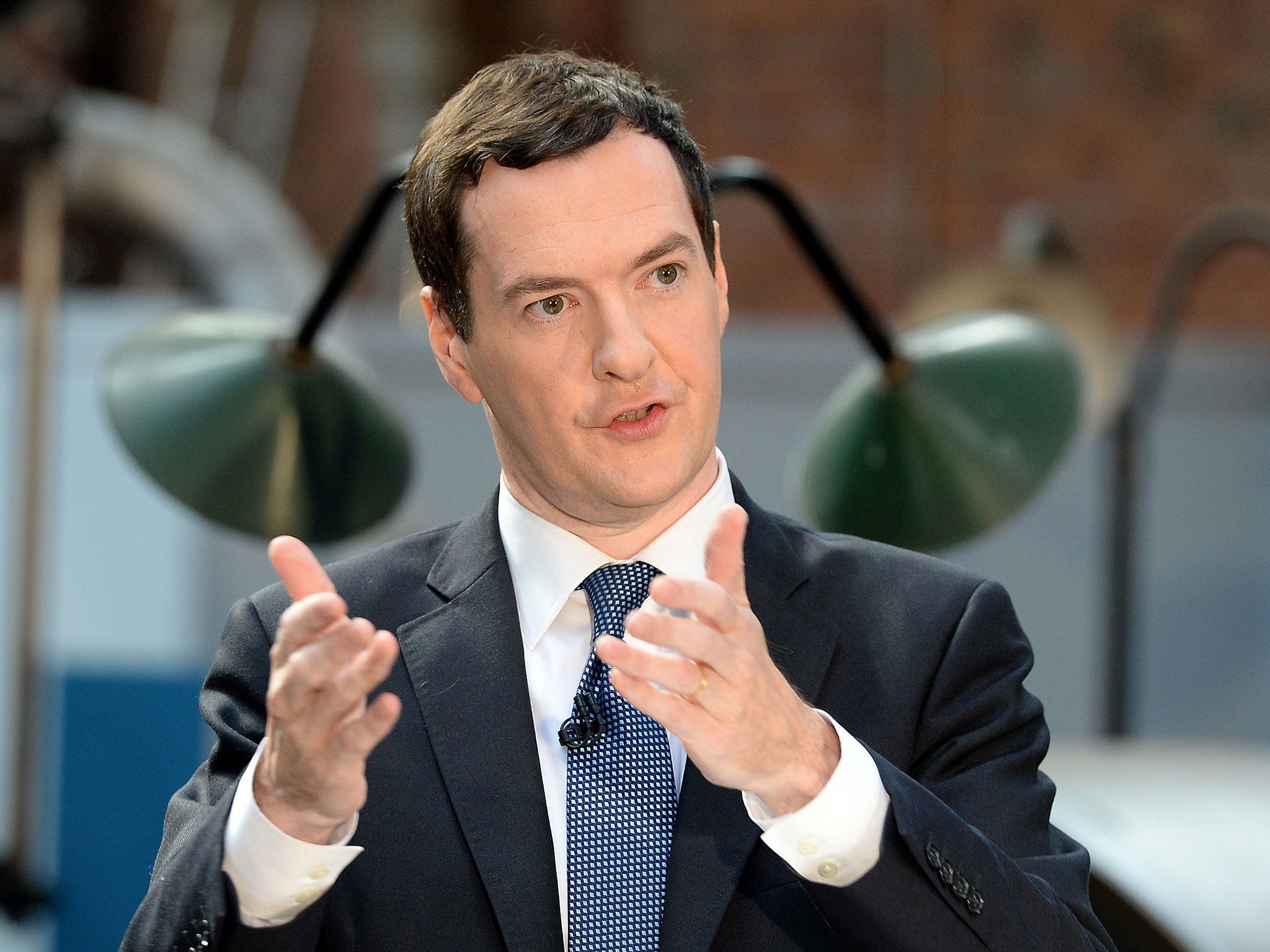Radical Tory tax plan spells the end of national insurance
Fears that tax merger is attack on the NHS

Income tax and national insurance could be merged by a future Conservative government under plans to simplify the tax system through its biggest shake-up for decades.
Chancellor George Osborne came close to approving the dramatic move in this year’s Budget, but backed off because of problems integrating computer systems, The Independent can disclose. Senior Tories believe the change – which is being actively considered by party chiefs – would make it clearer to taxpayers how much of their earnings they are handing over to the state.
Plans to press ahead with the reform are among those being examined for inclusion in next year’s Tory general election manifesto. One suggestion is that the merged charge could be called an “earnings tax”.
The move would mean basic-rate taxpayers handing over 32 per cent of their earnings and higher-rate taxpayers returning 52 per cent. Employers’ NI contributions are likely to remain unchanged under the plan.
The system of national insurance contributions dates back to 1911 when it was established to help working people insure against illness and unemployment. It was expanded after the Second World War to help fund the health service and wider social security programmes, and is now charged at 12p for every pound of income.
Video: George Osborne reveals Budget 2014
It has grown up in parallel with income tax, which traces its roots to the 18th century and is administered separately.
But senior Conservatives believe the distinction has become academic, particularly as general taxation is routinely used to meet the cost of the NHS. Mr Osborne almost approved the merger of the two forms of taxation this year, a source revealed. “We came within a whisker of doing this at the last Budget, but in the end we decided against it,” he said. “They are currently on two separate computer systems and we thought the risk was just too great. But it’s something we could do in the future in the next parliament.”
The source acknowledged fears that pensioners, who do not pay national insurance, could view the reform as a covert way of making them pay the charge.
“Some people think it is a cynical attempt by politicians to ensure they keep paying national insurance, but it isn’t,” he said.
However, a Labour member of the Commons Treasury Select Committee, John Mann, was fiercely critical of the proposal. “It would be disastrous. People understand national insurance is covering social welfare, not least the NHS,” he said. “Merging it with tax would be a long-term way of undermining the NHS. It’s the sort of thing the Tea Party would come up with in the United States.”
Tax experts have previously warned that while the concept of a single levy would be attractive, disentangling two separate payments with different rules would create practical problems. But Mr Osborne has been sympathetic to the principle of the reform since his arrival at the Treasury, and supporters of the move believe the problem of incompatible computer systems could be overcome in time.
In a consultation paper three years ago, the Treasury said the parallel taxes created bureaucracy and added costs for employers.
It argued: “We believe greater integration of the two systems has the potential to remove economic distortions, reduce burdens on business, and improve fairness across individual earners.”
In a survey in 2011, the Office of Tax Simplification, which is part of the Treasury, found almost unanimous support for the idea.
It warned it would take many years to introduce such “major structural changes”, but stressed the savings for employers, the self-employed and HM Revenue and Customs. The Institute for Fiscal Studies has also described the tax system as “opaque and unnecessarily complex, imposing two entirely separate taxes on earnings”. The two charges raised £254bn last year, comprising £152bn from income tax and £102bn from NI contributions.
Previous Chancellors have balked at merging the systems, not just because of the problem of how to protect the elderly from paying NI contributions on their pensions, but also due to the issue of tax on savings accounts and dividends, which are both exempt from NI.
Subscribe to Independent Premium to bookmark this article
Want to bookmark your favourite articles and stories to read or reference later? Start your Independent Premium subscription today.

Join our commenting forum
Join thought-provoking conversations, follow other Independent readers and see their replies